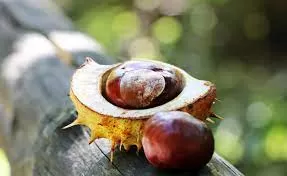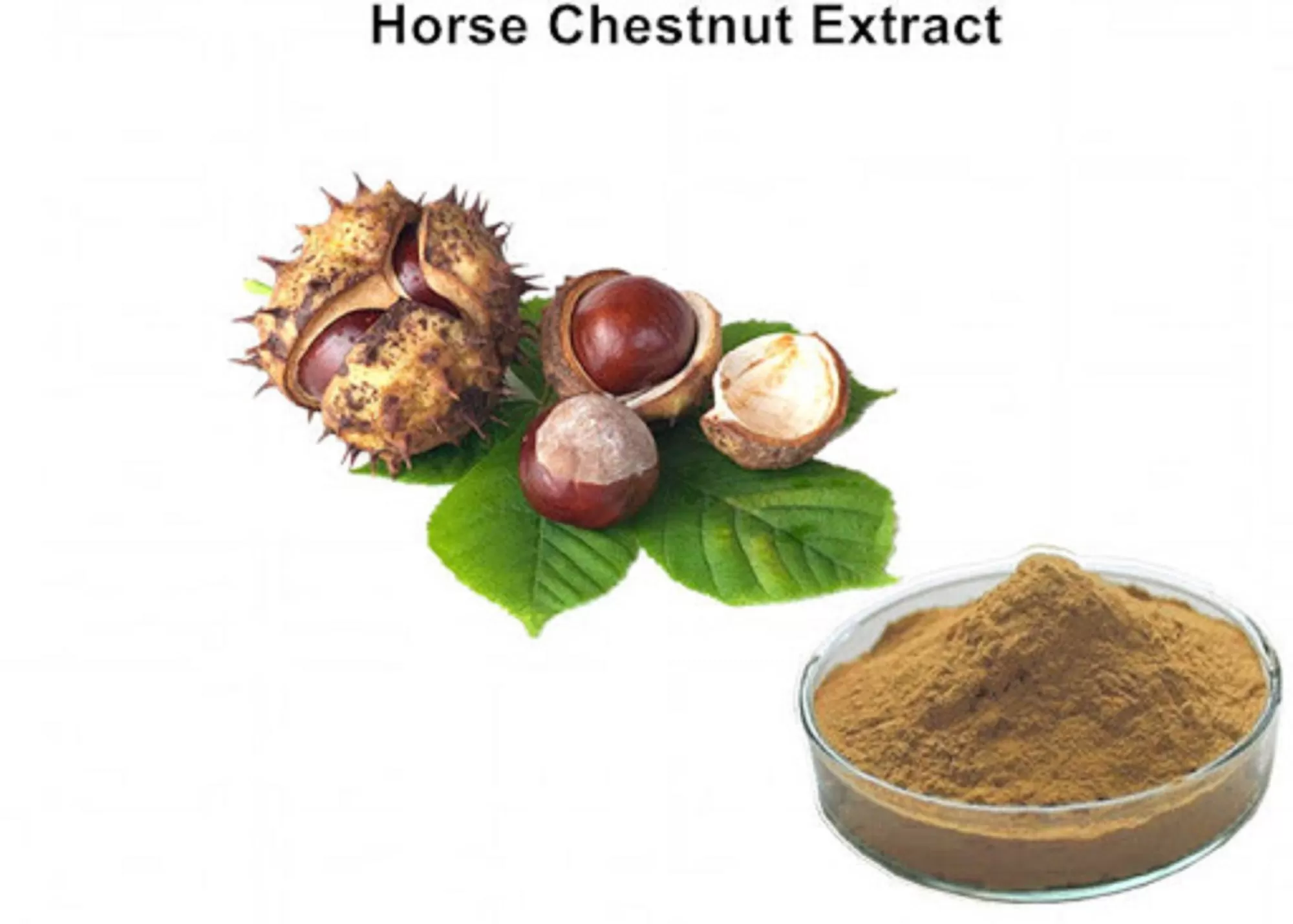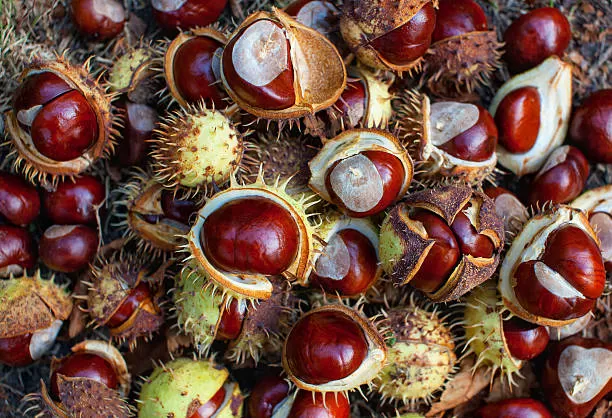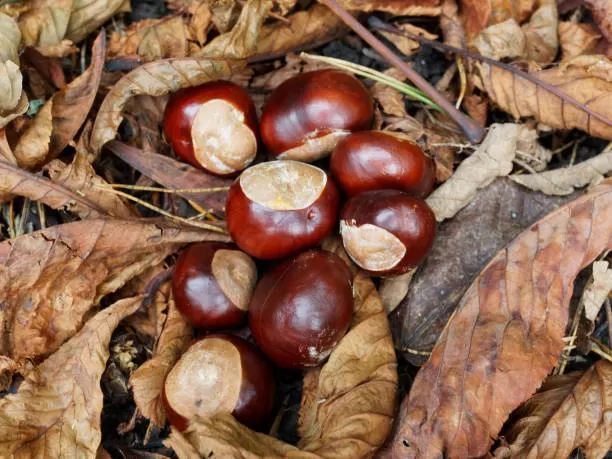- 0086-571-85302990
- sales@greenskybio.com
Is horse chestnut extract safe?
2025-04-28

In recent years, the interest in herbal and natural remedies has burgeoned, with individuals seeking alternative solutions for various health concerns. Among the plethora of botanical supplements available, Horse Chestnut Extract has garnered attention for its purported benefits, particularly in managing chronic venous insufficiency (CVI) and related conditions. However, as with any supplement, understanding the safety profile of Horse Chestnut Extract is crucial for informed decision-making. This article delves into the science behind Horse Chestnut Extract, its therapeutic potential, and evaluates its safety for consumer use.
What is Horse Chestnut Extract?
Horse chestnut extract is derived from the seeds of the Aesculus hippocastanum tree, a species native to the Balkan region but now widely grown across Europe and North America. Traditionally utilized in folk medicine, horse chestnut extract is primarily composed of a mixture of active compounds, including aescin, flavonoids, and other saponins. Aescin is recognized as the primary active component, credited with the plant's therapeutic effects, such as reducing inflammation and promoting venous circulation.
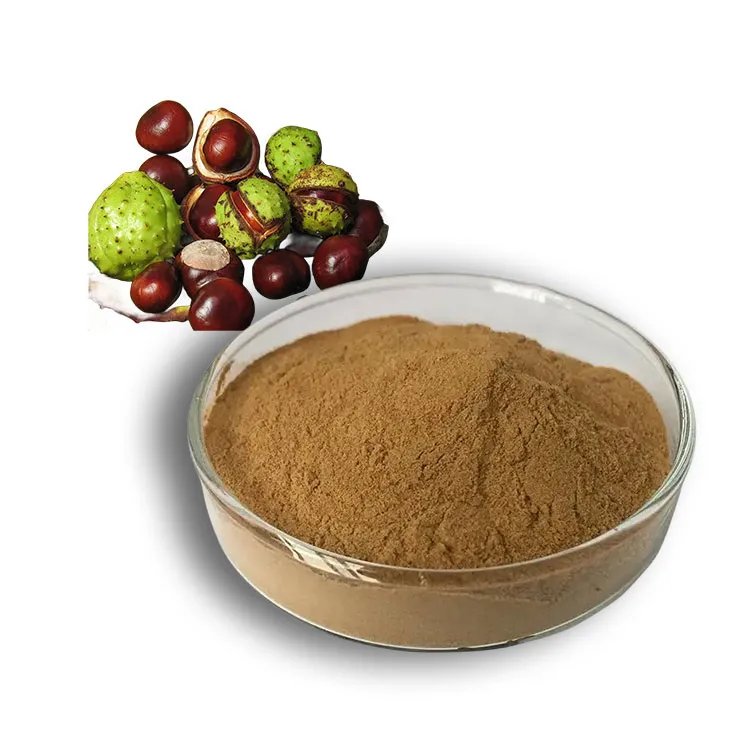
Therapeutic Benefits of Horse Chestnut Extract
The primary use of horse chestnut extract pertains to its efficacy in treating symptoms associated with CVI, a condition characterized by poor blood flow in the veins, leading to leg swelling, pain, and varicose veins. Research indicates that aescin may enhance blood circulation by strengthening vein walls and improving the function of vein valves. In clinical studies, horse chestnut extract has shown promise as a natural remedy to alleviate leg heaviness, swelling, and discomfort associated with CVI.
Beyond its vascular benefits, horse chestnut extract has been explored for other potential uses. Preliminary studies suggest it may have anti-inflammatory properties, offering relief for conditions like arthritis. Additionally, it is sometimes incorporated into topical applications for treating hemorrhoids due to its soothing effects.
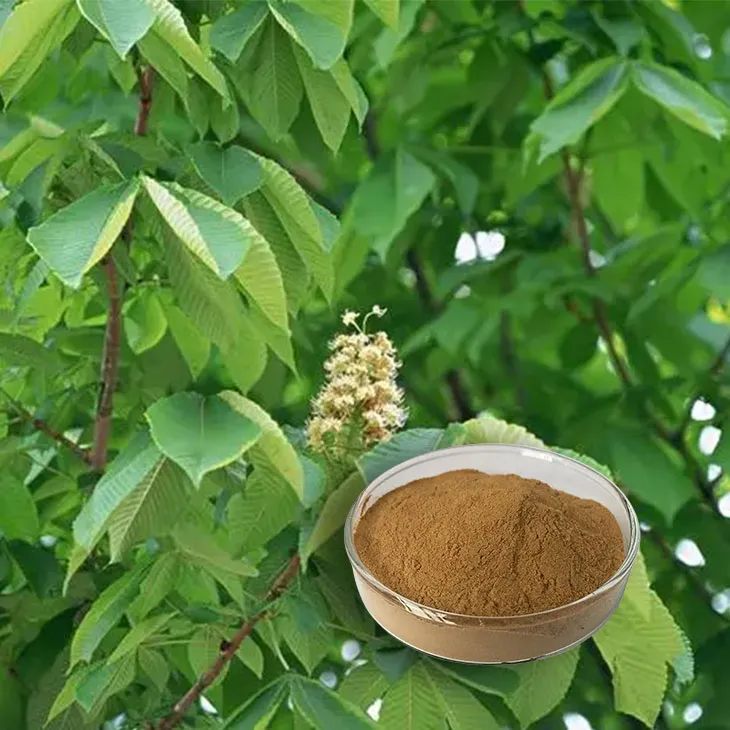
Evaluating the Safety of Horse Chestnut Extract
While the therapeutic prospects of horse chestnut extract appear promising, assessing its safety is paramount. Given its active compounds, horse chestnut extract can exert pharmacological effects similar to conventional medications, which necessitates caution in its use.
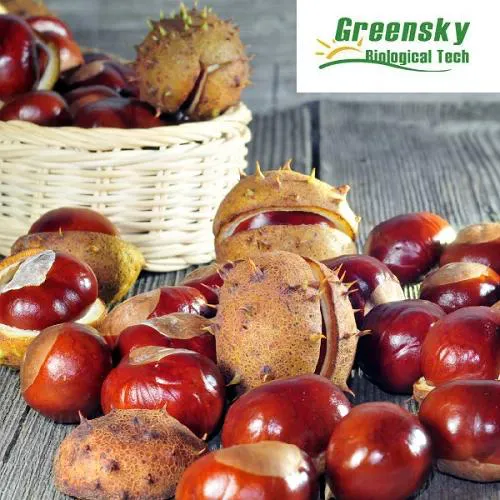
Safety Concerns and Recommended Cautions
Standardization and Quality Control: One crucial aspect of herbal supplements is the variability in formulation and concentration of active ingredients. Quality control is essential to ensure standardized doses of aescin, minimizing risks associated with inconsistent potency or contamination. Consumers are advised to choose products from reputable manufacturers that adhere to stringent quality standards.
Side Effects: Generally, horse chestnut extract is deemed safe for short-term use, with mild side effects reported. These may include gastrointestinal distress such as nausea, upset stomach, or diarrhea. Allergic reactions, although rare, can also occur, manifesting as skin rashes or itching. As such, it is advisable for first-time users to monitor their body's response, especially those with known sensitivities to botanical products.
Toxicity Risks with Raw Seeds: It is imperative to note that raw horse chestnut seeds contain toxic compounds such as aesculin and should never be consumed directly. These compounds can lead to severe side effects, including vomiting, diarrhea, confusion, and in extreme cases, death. Processed extracts usually undergo specialized procedures to remove these toxic constituents, making them safe for consumption.
Interactions with Medication: Individuals taking anticoagulant or antiplatelet medications should exercise caution when using horse chestnut extract due to its blood-thinning properties, which may potentiate the effects of these drugs. Consulting a healthcare provider before using horse chestnut extract concurrently with other medications is recommended to avert potential drug interactions.
Pregnancy and Lactation: The safety of horse chestnut extract during pregnancy and lactation is not well-established due to insufficient research data. To err on the side of caution, its use is discouraged among pregnant or breastfeeding women unless specifically advised by a healthcare professional.
Conclusion
Horse chestnut extract stands as a noteworthy herbal supplement with clinically validated benefits for managing chronic venous insufficiency and possibly other inflammatory conditions. Nevertheless, consumers must approach its use with an informed perspective, prioritizing products that meet quality standards and recognizing the potential for mild to moderate side effects. As with any supplement, the guidance of a healthcare provider is invaluable, particularly for individuals with pre-existing health conditions or those taking concurrent medications.
In the realm of herbal medicine, horse chestnut extract exemplifies the delicate balance between nature's potential and the imperative for safe, evidence-based application. As ongoing research continues to elucidate its mechanisms and safety profile, informed decisions will empower consumers to harness the benefits of horse chestnut extract responsibly.
- ▶ Hesperidin
- ▶ citrus bioflavonoids
- ▶ plant extract
- ▶ lycopene
- ▶ Diosmin
- ▶ Grape seed extract
- ▶ Sea buckthorn Juice Powder
- ▶ Beetroot powder
- ▶ Hops Extract
- ▶ Artichoke Extract
- ▶ Reishi mushroom extract
- ▶ Astaxanthin
- ▶ Green Tea Extract
- ▶ Curcumin Extract
- ▶ Horse Chestnut Extract
- ▶ Other Problems
- ▶ Boswellia Serrata Extract
- ▶ Resveratrol Extract
- ▶ Marigold Extract
- ▶ Grape Leaf Extract
- ▶ blog3
- ▶ blog4
- ▶ blog5
-
Is horse chestnut FDA approved?
2025-04-28
-
Does horse chestnut affect blood pressure?
2025-04-28
-
Is horse chestnut good for your legs?
2025-04-28
-
Apricot Powder
2025-04-28
-
Green coffee bean Extract
2025-04-28
-
Red Wine Extract
2025-04-28
-
Bitter Melon Extract
2025-04-28
-
Plantain extract
2025-04-28
-
Lotus leaf extract
2025-04-28
-
Aminolevulinic acid
2025-04-28
-
Europen Bilberry Extract
2025-04-28
-
Grapefruit Seed Extract Powder
2025-04-28
-
Green Tea Extract
2025-04-28











